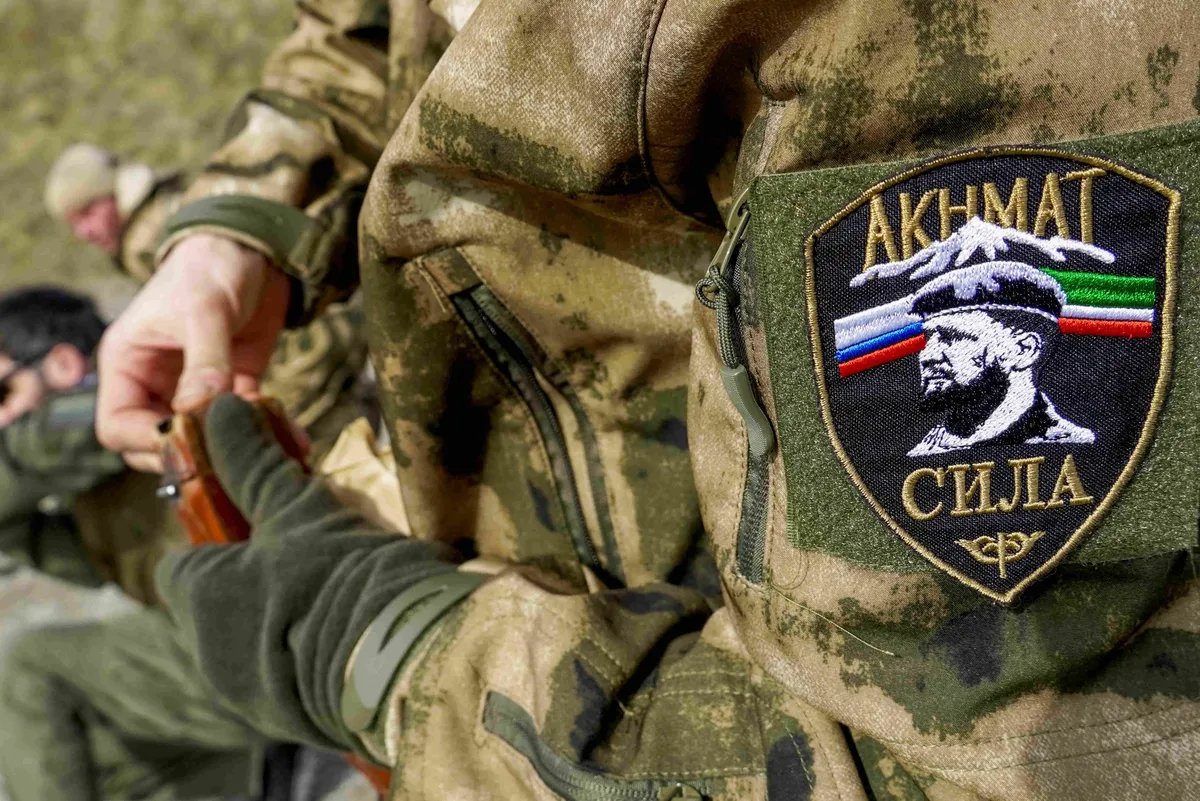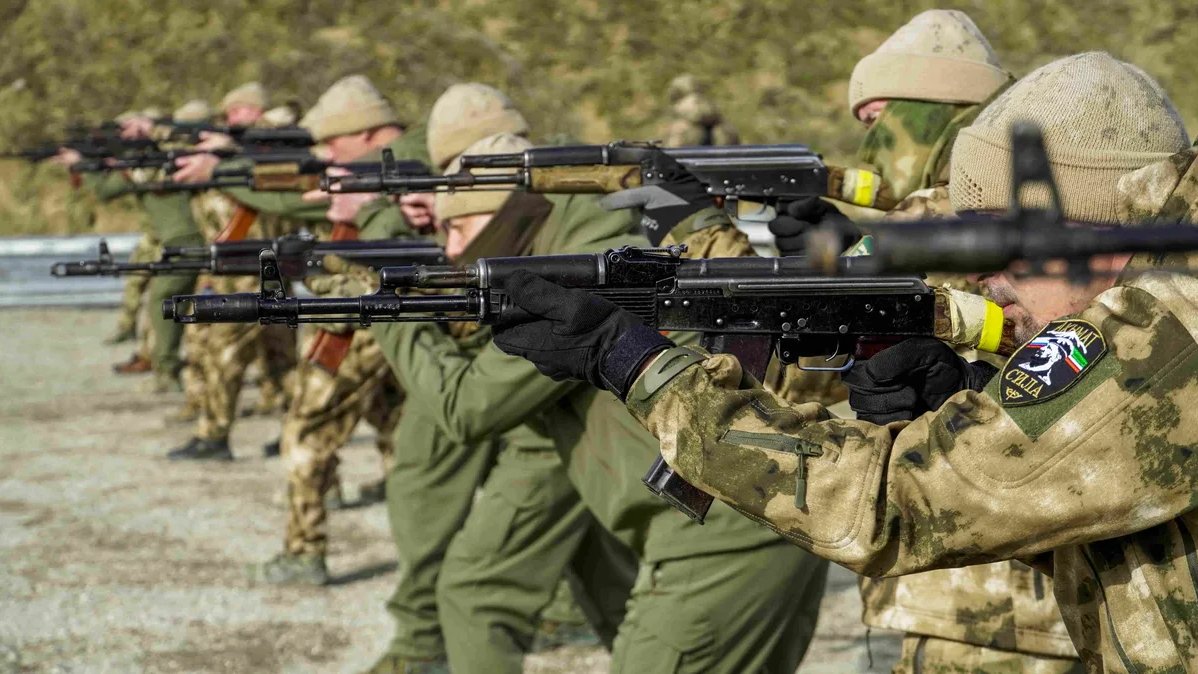Knife in the back
On the morning of 24 June, the Wagner Group’s mutiny attempt was in full swing. Head of Chechnya Ramzan Kadyrov took to Telegram not long after Putin’s address to the nation, calling Prigozhin’s rebellion a “knife in the back”.
Kadyrov called upon servicemen, security officers, governors, and civilians to “unite together around the nation’s leader”.
Once Prigozhin’s decision to withdraw his troops had been reported, Kadyrov expressed his disappointment in people who “couldn’t care less about loving their Homeland because of personal ambition and profit”.
Kadyrov also said that he had held talks with Prigozhin, trying to convince him to leave his business ambitions behind and not mix them with state affairs. He declared that Prigozhin’s “hurt and anger” had been born out of a “chain of unsuccessful business deals” and the refusal of the St. Petersburg government to provide a plot of land to his daughter.
“One person’s arrogance could have led to very dangerous consequences and drag a lot of people into a conflict,” the Chechen leader concluded.
Chechnya’s state TV channel Grozny reported that “3,000 fighters of the region’s elite forces were sent to the Russian capital to defend it from the participants of the armed rebellion”.
However, it seems that the Kadyrovites sent to Rostov-on-Don never did enter the city and simply stopped on its outskirts.
The omnipresent Akhmat
Almost every Chechen military unit is named after Ramzan Kadyrov’s father Akhmad (also spelled as Akhmat) Kadyrov, says Novaya Gazeta journalist Elena Milashina.
Chechnya’s residents largely form part of regiments and battalions under the jurisdiction of the National Guard or the Defence Ministry, she explains.
However, about 90% of the Akhmat special forces members are not Chechen — they’re volunteers from all over Russia who enlisted through the Russian Special Forces University, Milashina notes. The commander of the Akhmat forces is Apti Alaudinov.
According to Milashina, until recently, the volunteer fighters have been signing short-term contracts for a period of three to six months with the National Guard or the Defence Ministry.
An analysis of Ukrainian intelligence data on Russian volunteer units confirms that the volunteer-based Akhmat special forces unit is made up of 90% non-Chechen fighters. Chechnya’s authorities have also officially reported this.

Photo: Vladimir Aleksandrov / Anadolu Agency / Getty Images
Israeli military expert David Sharp also claims that most of Akhmat’s members aren’t from Chechnya but from other regions of Russia; they are of different nationalities, too. Chechens only take on the roles of higher ups and command officers.
According to Sharp’s source in the Ukrainian army, the Akhmat personnel are usually trained better than average Russian soldiers.
‘Tik-Tok troops’
A video posted to Ramzan Kadyrov’s Telegram channel shows Apti Alaudinov talking about his unit and regiment North Akhmat, made up of over 3,000 people. The Chechen leader sent North Akhmat to Rostov-on-Don to “restore order”.
The unit commander also promised to obey all orders of the supreme commander-in-chief, Vladimir Putin, and that he and his fighters would lay down their lives so that Russian citizens could live peacefully.
By that point, it was known that the Chechen units entered Rostov-on-Don only after all the Wagner Group detachments had been withdrawn from the city.
The Internet has branded the Akhmat special forces “Tik-Tok troops”, seeing as the fighters and commanders of this unit are the ones who most often post videos of their service online.
Elena Milashina believes that the special forces likely also take part in the hostilities.
She is certain that upon receiving a corresponding order, the Chechen units would have gone into battle with the Wagner mercenaries. This could have happened both in Rostov-on-Don and along the route of Prigozhin’s troops. It’s a good thing that a direct clash never happened due to the success of the negotiations. Otherwise, we could have witnessed the start of an ethnic conflict, Milashina says.
There’s a video of the Chechen detachments blocking the highway near the city of Kolomna, Moscow region, Milashina points out. However, there are no enemy forces shown in the video.
Furthermore, it is unknown where the National Guard and Defence Ministry units sent out from Chechnya had ended up. “I know for certain that various units, made up of Chechens, were being sent to Moscow. As per my info, the Chechen grouping in Moscow was led by Adam Delimkhanov,” adds Milashina. The Chechen Emergency Ministry forces were also deployed to Moscow.
The total number of all security forces de facto controlled by Ramzan Kadyrov is unknown. Before 24 February 2022, the number of fighters loyal to him was estimated at around 16,000.
As per Elena Milashina, Chechens have been taking part in the war since the first day of the Russian invasion of Ukraine. Several army regiments and battalions with Chechen members were established. All of them have a name with the word Akhmat in it.
Often, these battalions recruit people through Chechnya’s law enforcement — police officers are being trained to handle weapons. Judging by the fact that the detachments are suffering significant losses, these units are actively taking part in the fighting.
“Chechens can be good at fighting, but they don’t have a lot of motivation to be killed somewhere in a foreign land,” says Milashina. The situation might be different if they were forced to defend their own land. Currently, they are getting the combat experience necessary in a modern war, she notes.
In his turn, David Sharp emphasises that the level of Chechens’ involvement in the war could be debated. There have been no videos of them on the front line since the first days of the war, when the National Guard columns had been hit near Kyiv, he says.
“Many think that there aren’t any [Chechens] in the trenches. Even during the fighting for Mariupol, which the Chechen units took part in, it looked like they were primarily interested in video blogging”.
There were several instances when Ukraine targeted rear locations where the Chechen units were stationed, which led to noticeable losses among the Chechen troops, says Sharp.
As far as Milashina knows, the Chechen detachments have suffered significant losses in this war. However, the injured officers who returned from the war keep a low profile: they do not give any comments to the media nor do they post anything online.
Milashina adds that to her knowledge, there are not many Chechens present on the line of contact today: more often, they serve as military police, guarding the occupied territories. Furthermore, the higher-up Chechen commanders often leave the front line to return to Grozny and seem to engage in warfare on their own schedule, claims Milashina.
“A small number of Chechens were even members of the Wagner Group. During the rebellion, they tried to contact their relatives and abandon the mercenaries,” says the journalist.
David Sharp agrees that some of the Chechen units within the National Guard have been tasked with policing the occupied territories. He claims that the rumours about Kadyrovites acting as barrier troops to stop soldiers fleeing the battlefield do not hold a lot of weight to them.
The authorities have reported that soon after the rebellion petered out, the Chechen units returned to their bases and to the Ukrainian conflict zone.
Join us in rebuilding Novaya Gazeta Europe
The Russian government has banned independent media. We were forced to leave our country in order to keep doing our job, telling our readers about what is going on Russia, Ukraine and Europe.
We will continue fighting against warfare and dictatorship. We believe that freedom of speech is the most efficient antidote against tyranny. Support us financially to help us fight for peace and freedom.
By clicking the Support button, you agree to the processing of your personal data.
To cancel a regular donation, please write to [email protected]

